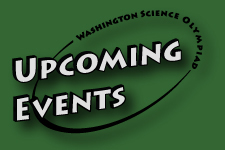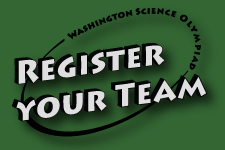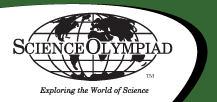![]()
National Science Olympiad is a non-profit organization that promotes science instruction by organizing a national level Science Olympiad tournament annually (usually in May). Since inception of the idea in 1985, Jack Cairns and Gerard Putz have been promoting Science Olympiad instruction and competition throughout the United States and Canada. Now, 13,500 schools, or roughly 2-3 million junior, middle and high school students prepare and compete each year.
In preparation for the national tournament, National Science Olympiad publishes an official rules manual in the Fall of each competition season. This rules book outlines around 23 events per division (B-Division = middle and junior high schools/grades 6-9; C-Division = high schools/grades 9-12) that will be required events in regional, state, and national tournaments. Additionally, tournaments may include 1-3 trial events, events that may become regular events in future Science Olympiad competitions ... tournaments select from about 70 potential trial events they feel would be great learning activities for students. In Washington, membership selects trial events that will be included in the state tournament (optional for regional tournaments).
Events encompass the categories of (1) Life, Personal & Social Science; (2) Earth & Space Science; (3) Physical Science & Chemistry; (4) Technology & Engineering; and (5) Inquiry & Nature of Science. In other words, participating in Science Olympiad teaches students about Biology, Chemistry, Computer Science, Engineering, Geology, and Physics, among other science fields. These events have titles like Battery Buggy, Don't Bug Me, Mystery Architecture, Microbe Mission, Bridge Building and other names that hint at the amazing science activity. As a whole, the selection of events require that a team (of up to 15 students) learn portions of every area of science included in the majority of school science curriculums.
Rules for these events are meticulously edited every year by Science Olympiad leadership ~ comprised of scientists and educators throughout the country. Each set of rules provides testing specifications which students must meet to be eligible for the National Science Olympiad competition.
Washington Science Olympiad is a state level, non-profit organization which operates independently of National Science Olympiad. However, because of the history and nature of Science Olympiad the function of the two entities, National Science Olympiad and Washington Science Olympiad, is interdependent.
Washington Science Olympiad was founded in 1986. Co-Directors, Bob Campbell and Dick Prouty teamed up in the late 1980s and 1990s to promote Science Olympiad throughout the state. This year, over 120 teams are participating in four regional tournaments. The top five to ten teams from each division in each regional tournament go on to compete at the state tournament. The top team from each division at the state tournament then goes on to compete at the national tournament. Depending on total registration, second place teams in each division may advance to the national tournament.
Washington State regional tournaments, which are held in March, are:
Eastern region (Spokane Community College or Spokane Falls Community College)
NW region (Highline Community College and Seattle Central Community College)
SW region (Lower Columbia College)
The state tournament is held in April and currently is hosted at either Eastern Washington University in Cheney or Clark College in Vancouver.
Washington Science Olympiad tournaments are held on Saturdays and take all day. Usually, check-in and opening ceremony are early in the morning, competition takes place throughout the late morning and early afternoon, competitors are assessed, scores are tallied, and awards (trophies and medals) are distributed in the early evening.
The workload for presenting a science-based competition of this nature is enormous. Each competition takes months to prepare. Thankfully, Washington has had strong support from community individuals, businesses and educational institutions. If you would like to learn more about National Science Olympiad or Washington Science Olympiad, click on the links or ... just dive in! There is a place for you!
Write to: Sue Murphy if you would like to register a team, volunteer to assist with competition preparations, or provide financial support as an official sponsor. Thank you.






